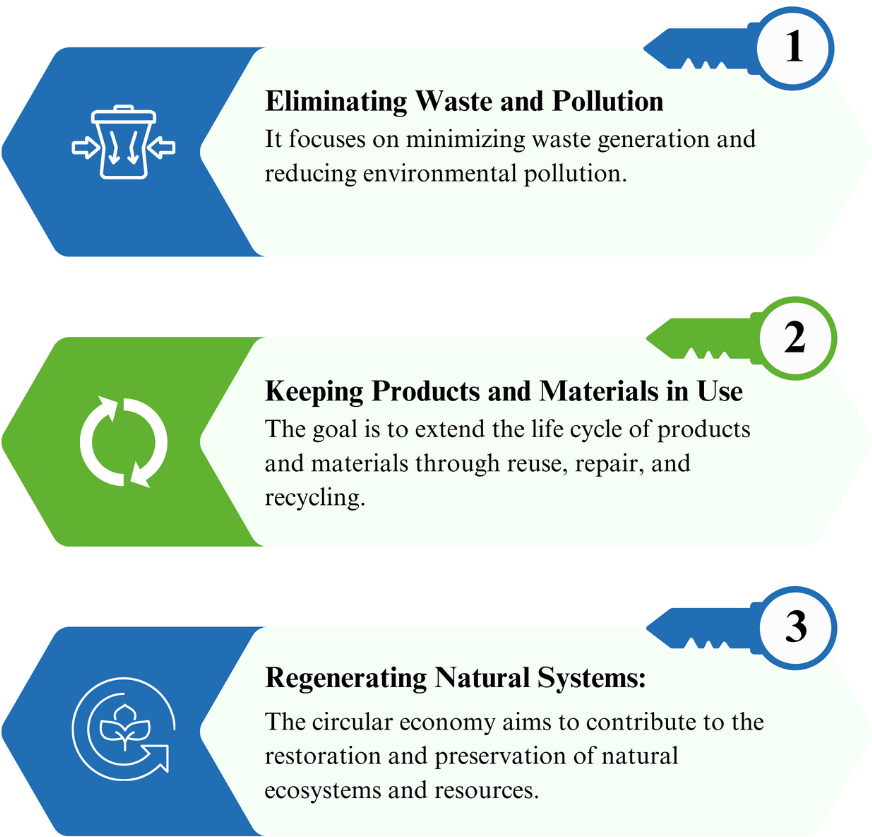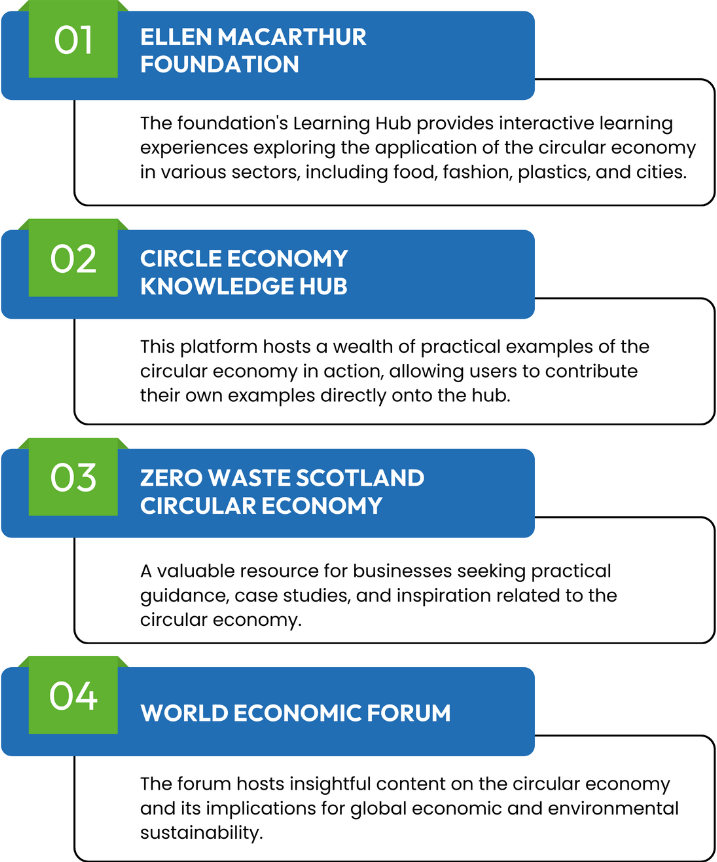Introduction
The concept of a circular economy has emerged as a transformative approach to economic activity, aiming to minimize waste and maximize the use of resources. It represents a fundamental shift from the traditional linear model of ‘take-make-dispose’ to a more regenerative and restorative system. Here’s a comprehensive overview of the circular economy and its significance in driving sustainable practices.

Understanding the Circular Economy
In a circular economy, products and materials are kept in circulation through processes like maintenance, reuse, refurbishment, emanufacture, recycling, and composting.
This approach ensures that materials never become waste and nature is regenerated. The circular economy addresses critical global challenges such as climate change, biodiversity loss, waste, and pollution by decoupling economic activity from the consumption of finite resources.
Key Principles and Benefits
The circular economy is driven by three core principles :

Embracing the circular economy offers numerous benefits, including reduced environmental impact, enhanced resource efficiency, and the creation of new economic opportunities through innovative business models and sustainable practices.
Resources for Building Circular Economy Knowledge
To deepen your understanding of the circular economy, several reputable websites offer valuable resources, insights, and case studies:
1. Ellen MacArthur Foundation: The foundation’s Learning Hub provides interactive learning experiences exploring the application of the circular economy in various sectors, including food, fashion, plastics, and cities.
(source : https://www.ellenmacarthurfoundation.org/ )
2. Circle Economy Knowledge Hub: This platform hosts a wealth of practical examples of the circular economy in action, allowing users to contribute their own examples directly onto the hub.
(source : https://knowledge-hub.circle-economy.com/ )
3. Zero Waste Scotland Circular Economy Accelerator: A valuable resource for businesses seeking practical guidance, case studies, and inspiration related to the circular economy.
(source : https://bit.ly/4ai5a2H )
4. World Economic Forum: The forum hosts insightful content on the circular economy and its implications for global economic and environmental sustainability.
(source : https://www.weforum.org/ )

Moving Towards a Circular Future
As the world increasingly recognizes the importance of sustainable practices, the circular economy stands out as a pivotal framework for driving positive change. By transitioning to a circular model, businesses, cities, and nations can contribute to a more sustainable and resilient future, while fostering innovation and responsible resource management. In conclusion, the circular economy represents a powerful paradigm shift towards a more sustainable and regenerative economic system. By leveraging the principles of circularity, we can work towards a future where economic prosperity is harmonized with environmental preservation and social well-being.

